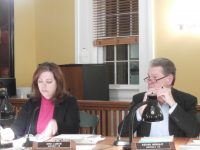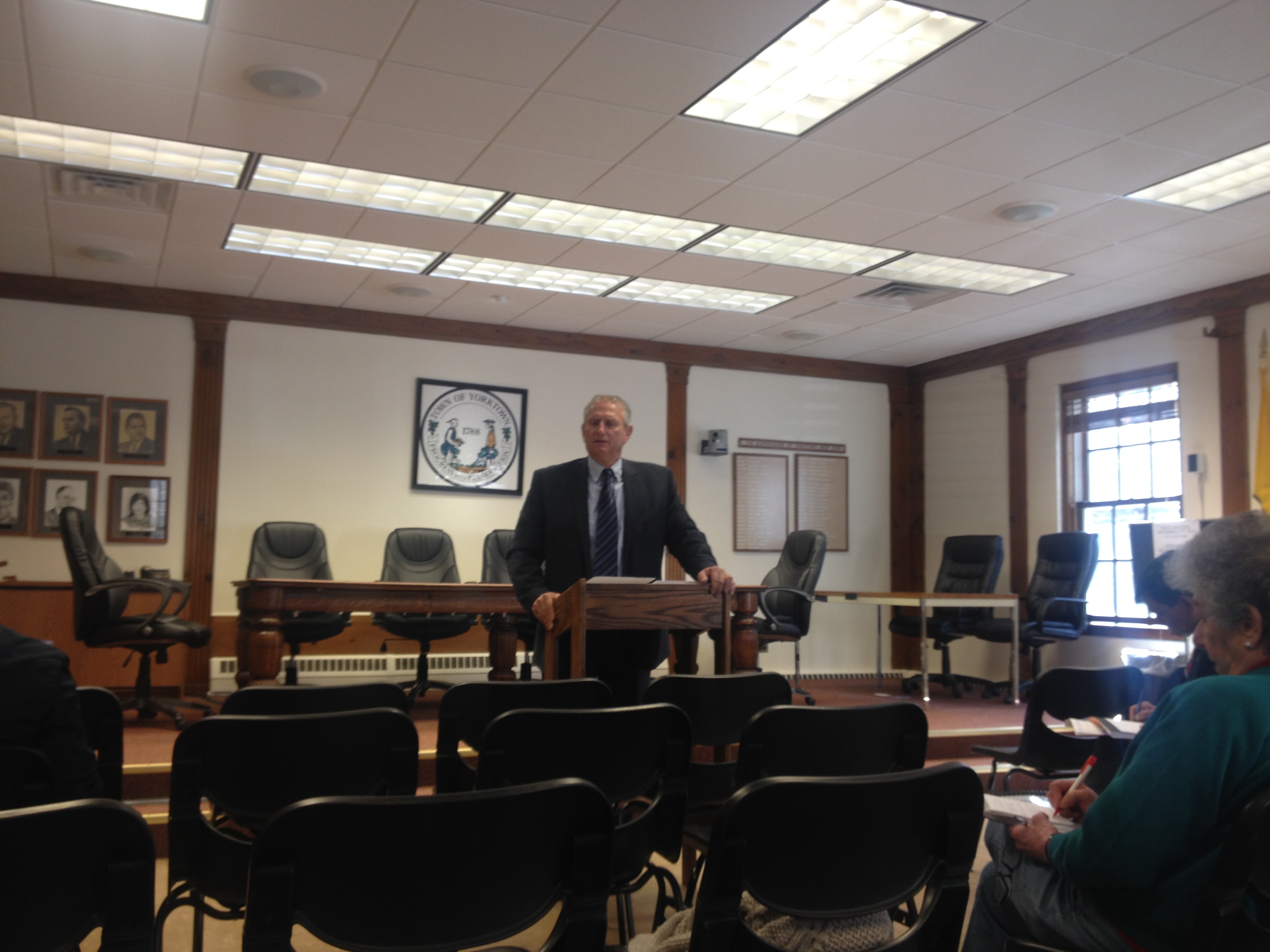Putnam Legislators Vote to Adopt County Budget

In a 7-2 vote, the county Legislature signed off on this year’s budget that comes out to $153 million and remains under the New York State tax cap for the fifth year in a row.
While lawmakers had some disagreements, a month of punching numbers remained practically contentious free with only some mild debate prior to the final approval of County Executive MaryEllen Odell’s proposed spending plan.
Legislators Kevin Wright and Dini LoBue were the two lawmakers that voted against the budget. For LoBue, it was the fifth straight budget she rejected, and for Wright, it was his third consecutive no vote.
Wright said he had “serious reservations” about the overall spending, particularly debt spending. While compared to other counties Putnam might be in better shape, he did note Putnam’s debt per capita is 197 percent more than Dutchess County.
“That to me is just wrong,” Wright said. “These are fragile economic times and I’m truly concerned we don’t have our eye on the long term well being not only of the elderly and the young who cannot afford to live in our county, but the ever-growing middle that appears to be moving away from Putnam.”
LoBue assailed the budget, complaining the county had to take about $6 million from the general fund to make the budget whole. She said staying under the tax cap is not enough and county government continues to grow with unnecessary spending and patronage jobs.
“I think there is a disconnect between this county government and the people it serves,” she said. “There are people who are really suffering.”
But others lawmakers that supported the budget gave it high marks.
Legislator Carl Albano called it “sound” and there is always room to do better. Legislator Roger Gross noted the county is forced by the state and federal government to perform a vast amount of services like Medicaid.
“Albany keeps whacking the county,” Gross said, noting there are some positions that could have been cut if enough support was there. He called this the “best” spending plan compared to his previous years on the legislature.
Legislature Chairwoman Ginny Nacerino said for the most part it’s a “barebones budget” and “very conservative.” The county auditors have pointed out the county is in good financial shape, Nacerino said.
Prior to the adoption, legislators battled over certain details in the budget.
Legislators determined to put another $100,000 into Legal Aid Society stashed away in sub-contingency, up from the $25,000 they had agreed on in a committee meeting the week before. In a tight 5-4 vote, Legal Aid, an outside agency that provides free legal defense and family court services, will get close to $800,000 from the county.
LoBue noted many of the residents that need Legal Aid are either veterans or young adults that are struggling with a drug addiction. She said the county might have to pay more later on if they don’t try to plug the shortfall now.
“This affects the most vulnerable people in our community,” she said.
Gross said because Legal Aid is expected to service more eligible clients because of new eligibility guidelines dictated by the state and a grant from the state came to an end, Legal Aid is going to be in a hole financially. Gross said the county must deal with helping its residents if the state won’t provide the funding.
Wright, the former Putnam district attorney, said if Putnam citizens struggling from drug addiction don’t get proper legal representation, they could get felony convictions instead of lesser charges and become unemployable later in life and need to rely on government assistance.
But some lawmakers were left unconvinced, complaining it’s another unfunded mandate handed down by the state.
Albano said by putting the money in sub-contingency, it’s a message to the state that “don’t worry, the county has your back.” He suggested if every county refused to fully fund Legal Aid, the state would then be forced to correct their actions.
The legislature also narrowly decided to keep the historian’s position part-time after it originally planned to make it full-time.
Gross said while he thinks the historian, Sarah Johnson, does an excellent job, he believes the county would be growing government. Legislator Toni Addonizio said historian staffs in other neighboring counties are as small or smaller than Putnam’s.
Castellano, who supported the full-time position, called the job important. He added Johnson has worked well beyond her job requirements and because of a vacant position in the office, it would only be around a $10,000 increase in the historian’s office budget. Scuccimarra said the full-time position would be an investment in the county’s history.
Legislators voted 6-3 to keep the position part-time.
Johnson, who was at the meeting and appeared annoyed at the decision, declined comment on the legislature’s move. The new salary would have been a little more than $54,000, an increase of $25,000.
As with every budget, Legislator LoBue attempted to maneuver some funds that would give the legislature more control of certain spending.
LoBue was able to get $100,000 put into sub-contingency for the tourism agency after she questioned the agency’s finances. Lawmakers signed off by a 7-2 vote.
Scuccimarra, who was against the move, said the newly named board of directors was working well and heading in the right direction, including finding a new director to replace resigned head Libby Pataki.
“You’re tying their hands,” Scuccimarra said.
LoBue wasn’t able to move $100,000 from the Parks and Recreation Department that is pegged to make renovations to the Putnam County Golf Course in Mahopac. That motion failed 6-3.
The legislature also voted to give itself a 2 percent pay raise by a 7-2 margin, with Legislator Bill Gouldman and Wright voting against it. County lawmakers currently get a little more than $35,000 annually.
While it had nothing to do with crunching the numbers, lawmakers also delved into issues of transparency, or lack thereof during the budget process.
In response to complaints from several residents about openness within county government the night before during the public hearing, Gross said committee meetings are “totally transparent.” If a resident can’t make a meeting, Gross said each legislator could be contacted for information.
Nacerino also took issue with complaints of transparency, noting there are seven committee meetings per month, “embracing the public.”
But Wright and LoBue both argued there could be more done. Wright said he thinks public comment should occur before the voting begins at a full legislative meeting.
“Let’s give the citizens credit for the ability from time to time to enlighten us in a way that is helpful,” Wright said.
LoBue would like to see the budget more visible on the county website and have copies of the budget printed out at committee meetings because “people feel are they are not given the truth.”


